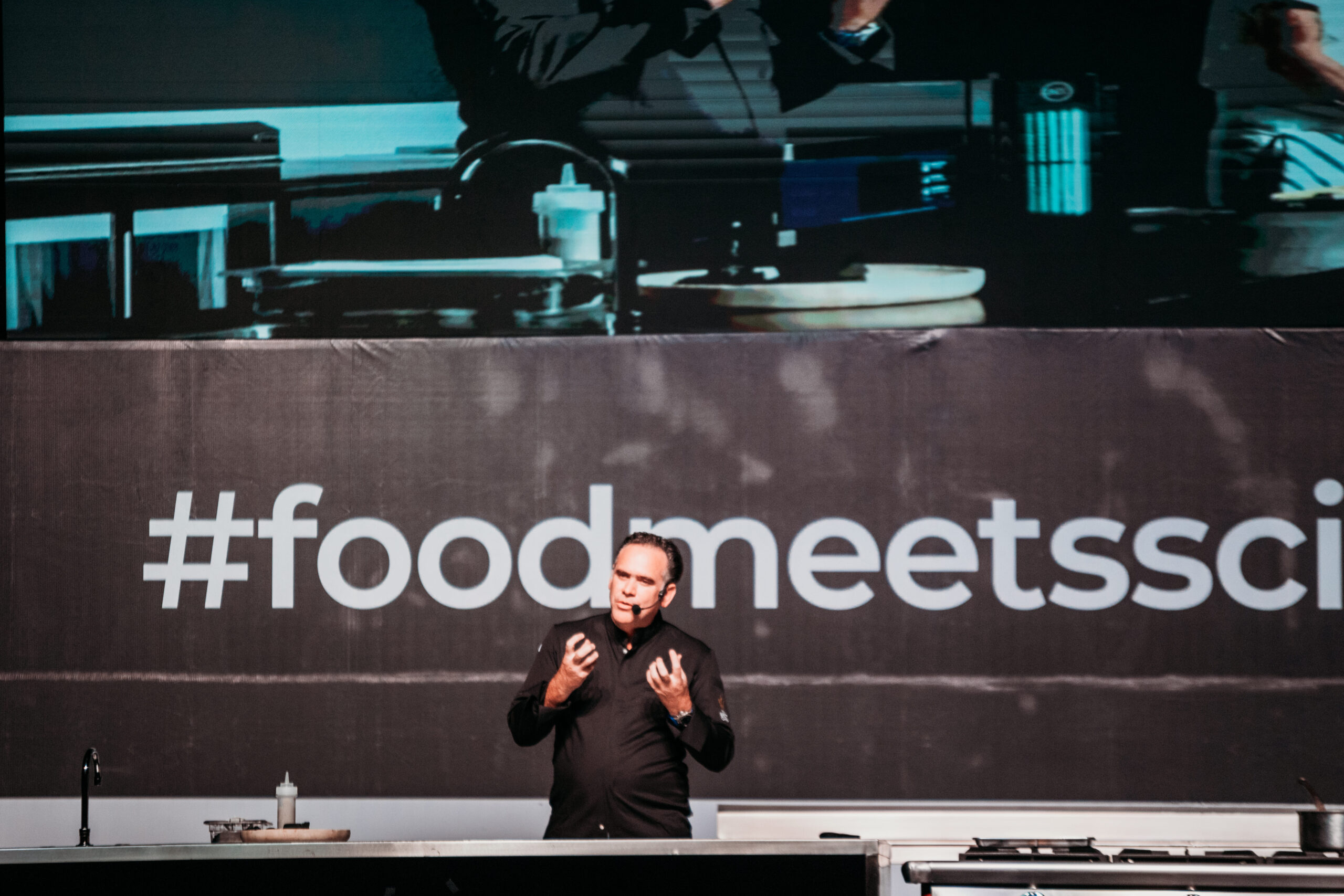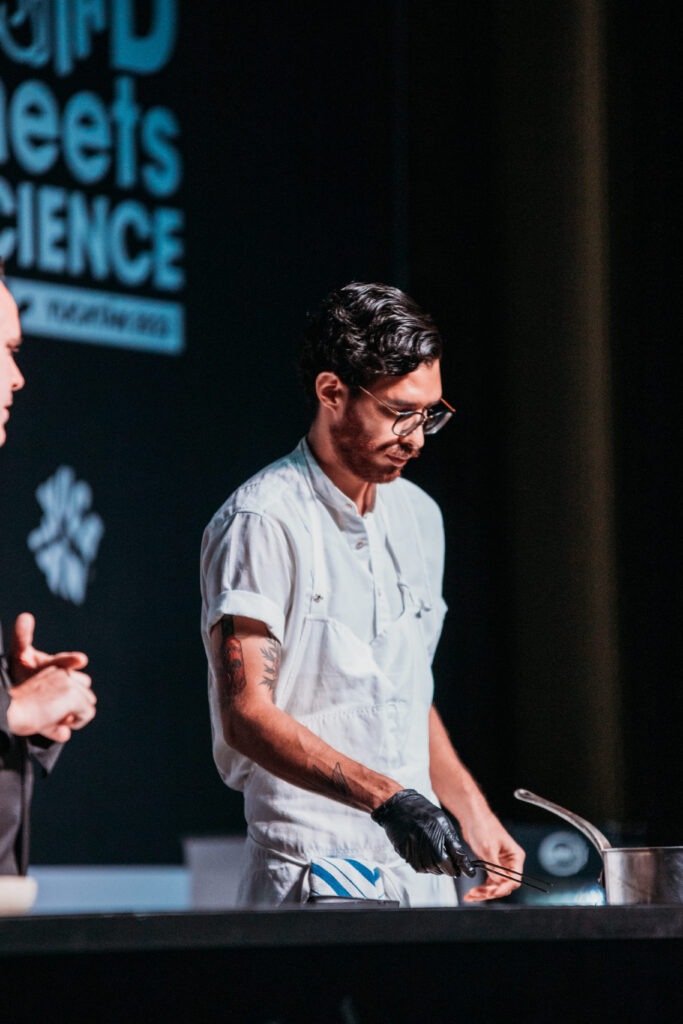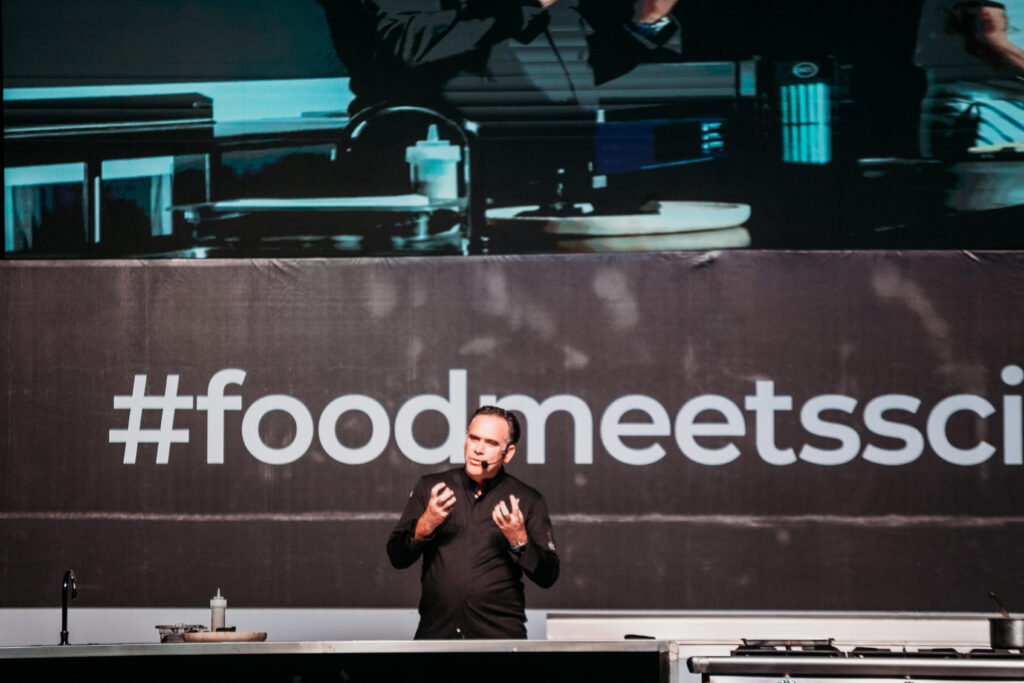
Exploring the Intricacies of Yucatecan Cuisine through Recado Negro – Roberto Solís
Within the diverse tapestry of culinary narratives, the color black often evokes associations of charred bitterness. Yet, an expedition into the rich culinary landscape of Yucatecan cuisine unveils a surprising discovery—adding “recado negro” to dishes becomes a sensual journey that transcends conventional culinary patterns.
“Since childhood, the color black has been associated with mysticism for me,”
Roberto Solís



Recado Negro, a carefully prepared paste combining local and Spanish spices, is not only a feast for the senses thanks to its deep, ebony color, but also its aromatic flavor profile. Its presence on the plate, even if its purpose remains unknown, beckons contemplation. This culinary marvel possesses a transformative power that elicits admiration, provokes introspection, and, above all, delights the palate with its unique taste and captivating aroma.
Heart of Yucatan’s identity
This is more than an ingredient; Recado Negro is a treasure trove of history, a vessel of culture, and, above all, the pulsating heart of Yucatan’s identity. It transcends the mere act of preparing food; it is about safeguarding the essence of cultural heritage, ensuring that every flavor, every technique, and every ingredient narrates a story that spans generations.

Guarding History
In Chef Solís’ presentation, the narrative extends beyond the realm of culinary elements. It introduces us to individuals like Dona Tina, a defender of the heritage of our ancestors. The chef’s profound connection to these communities transforms him into more than just a culinary master; he becomes a respected guardian of Yucatecan cuisine. This storytelling delves beyond the pursuit of knowledge; it immerses itself in the delicate art of cultivating traditions and upholds an unwavering commitment to perpetuating them.
Amidst the uncertainties facing the culinary community, the role of chefs takes on a crucial dimension. It transcends the mastery of flavors, serving as guardians protecting the rich heritage of the region. This recognition underscores that culinary traditions are not static recipes but living expressions of a community’s identity. As chefs, our responsibilities extend far beyond the confines of the kitchen; they involve ensuring the eternal existence of these traditions, acknowledging their vitality, and recognizing the integral role they play in shaping the cultural heritage of the Yucatecan region.









Post a comment